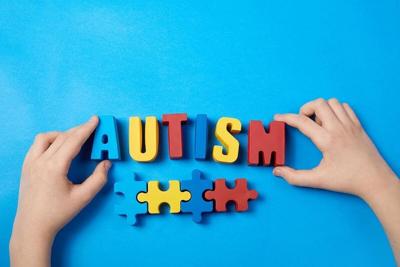Key Takeaways
An Alzheimer’s disease pill might help kids with autism
Memantine boosted social functioning among these kids and teens
The drug blocks the activity of the neurotransmitter glutamate, which is found in higher levels in people with autism and Alzheimer’s
MONDAY, Oct. 6, 2025 (HealthDay News) — An approved pill for Alzheimer’s disease might help boost social functioning in some children and teens with autism spectrum disorder, a new small-scale clinical trial has found.
Memantine improved these kids’ social behaviors 56%, compared to a 21% improvement among kids taking a placebo, researchers reported in JAMA Network Open.
“Participants who responded to memantine showed improvements in social competence and a reduction in autism symptom severity, although they continued to experience milder features of autism,” lead researcher Dr. Gagan Joshi said in a news release. He’s director of the Bressler Program for Autism Spectrum Disorder at Massachusetts General Hospital in Boston.
Memantine decreases abnormal activity in the brain caused by glutamate, an abundant neurotransmitter that plays a major role in learning and memory.
It’s approved to treat people with moderate to severe Alzheimer’s, by blocking receptors that cause memory loss when persistently activated by glutamate, according to Drugs.com.
Some people with autism have abnormal levels of glutamate in their brains, which led researchers to think memantine might also help these patients.
“If you have elevated blood glucose, we prescribe antidiabetic medications to decrease blood sugar levels,” Joshi said. “In the same way, we looked to see if glutamate modulators could improve social functioning in autism for individuals with abnormally high brain glutamate levels.”
For the clinical trial, researchers recruited 42 kids ages 8 to 18 who had autism without intellectual disability. The kids were randomly assigned to take either memantine or a placebo for 12 weeks.
Of those kids, 33 completed the trial, including 16 on memantine and 17 on placebo, researchers said.
“We saw that patients who responded to memantine became more socially engaged,” Joshi said.
Brain scans showed that all the kids had medium-to-high levels of glutamate activity in the pregenual anterior cingulate cortex (pgACC), a glutamate-rich brain region responsible for social processing and emotional awareness.
About 54% had abnormally high levels of glutamate and the rest medium levels, compared to brain scans of 16 kids without autism.
All of the kids who responded to memantine had high glutamate levels, and 80% of kids with abnormally high glutamate responded favorably to memantine, results showed.
The drug was generally well-tolerated, although some kids reported mild side effects like headaches, researchers said.
More research is needed to better assess the drug’s potential usefulness in treating autism, Joshi said.
“Larger clinical trials could help assess memantine responses in broader populations with ASD,” Joshi said.
More information
The Cleveland Clinic has more on glutamate and memantine.
SOURCE: Mass General Brigham, news release, Oct. 1, 2025
What This Means For You
Parents of children with autism should ask their doctor about upcoming clinical trials for memantine.















(0) comments
Welcome to the discussion.
Log In
Keep it Clean. Please avoid obscene, vulgar, lewd, racist or sexually-oriented language.
PLEASE TURN OFF YOUR CAPS LOCK.
Don't Threaten. Threats of harming another person will not be tolerated.
Be Truthful. Don't knowingly lie about anyone or anything.
Be Nice. No racism, sexism or any sort of -ism that is degrading to another person.
Be Proactive. Use the 'Report' link on each comment to let us know of abusive posts.
Share with Us. We'd love to hear eyewitness accounts, the history behind an article.